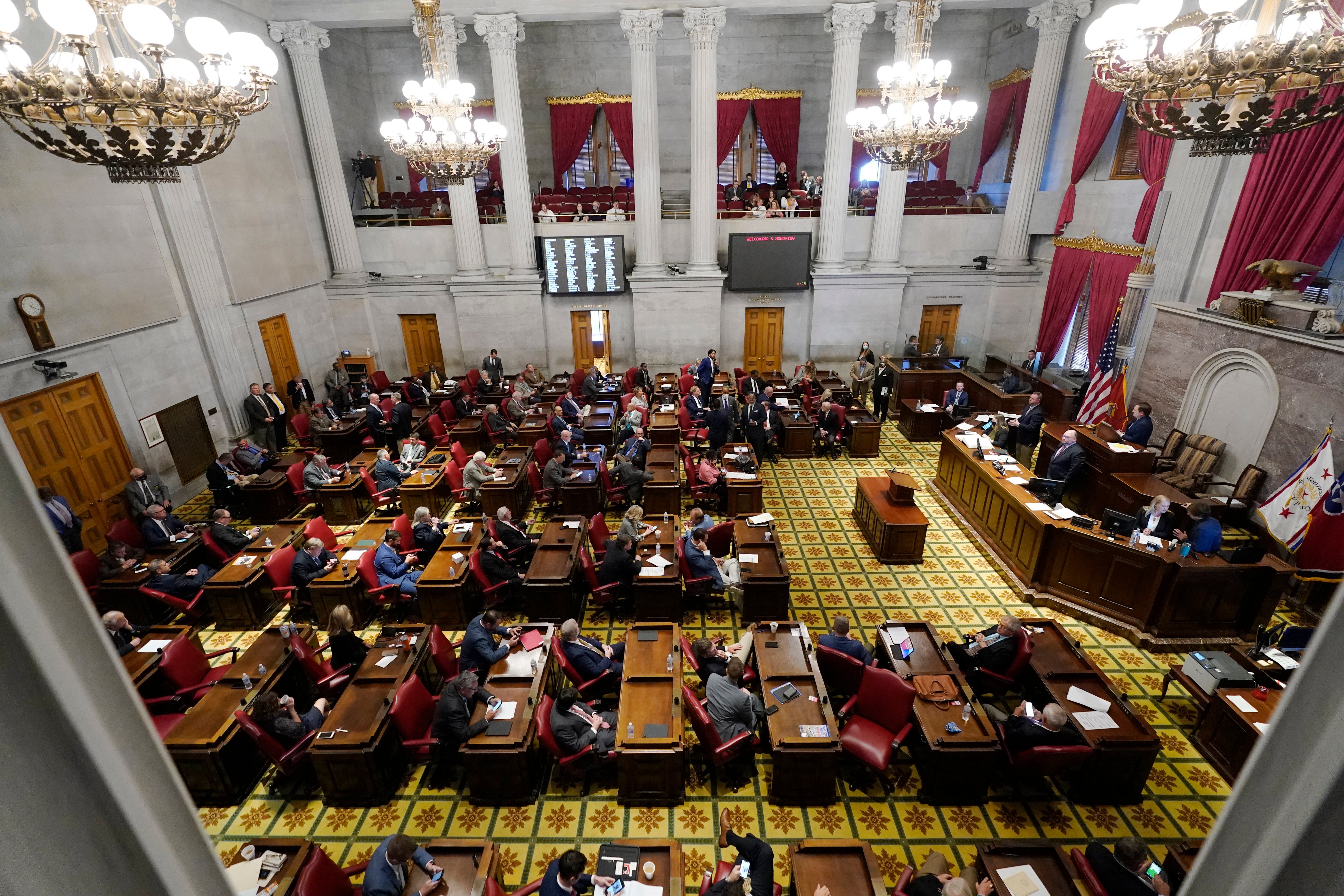Tennessee close to banning residency requirements for police
A growing group of Tennessee Republican is proposing a statewide ban on residency requirements for all first responders

Your support helps us to tell the story
From reproductive rights to climate change to Big Tech, The Independent is on the ground when the story is developing. Whether it's investigating the financials of Elon Musk's pro-Trump PAC or producing our latest documentary, 'The A Word', which shines a light on the American women fighting for reproductive rights, we know how important it is to parse out the facts from the messaging.
At such a critical moment in US history, we need reporters on the ground. Your donation allows us to keep sending journalists to speak to both sides of the story.
The Independent is trusted by Americans across the entire political spectrum. And unlike many other quality news outlets, we choose not to lock Americans out of our reporting and analysis with paywalls. We believe quality journalism should be available to everyone, paid for by those who can afford it.
Your support makes all the difference.For years, leaders in Tennessee s largest majority-Black city have debated the merits of requiring police officers to live in the county they patrol.
After a lengthy back and forth, a growing group of Republican lawmakers is looking to pull from a familiar playbook by declaring the decision is no longer Democratic-leaning Memphis to make. Instead, they're proposing a statewide ban on residency requirements for all first responders.
“Reducing violent crime, public safety and safe streets are the number one priority of the residents of Memphis,” Rep. Mark White, a Republican from Bluff City and co-sponsor of the legislation, said in a recent statement. “This bill will aid efforts to make our streets safer.”
Nationwide, questions have long swirled around whether residency requirements improve relationships between police and communities, though they've been in place for decades. Researchers point to the lack of studies backing their effectiveness, while police reform advocates argue there are more meaningful actions departments could take, such as banning chokeholds or increasing accountability, to boost trust.
“One of the trickiest things to residency requirements is determining what is the goal of them,” said Sarah Greenman, an assistant professor of criminology and criminal justice at Hamline University in Saint Paul, Minnesota. “Is it to reduce crime? There are other effective ways to do that better.”
Greenman pointed out that there's no guarantee police officers living under a residency requirement will interact with community members they run across on patrol. Instead, she countered, police agencies could incentivize their officers to join community boards and participate in local social events to help build trust.
“Residency requirements can sometimes sound good, but I'm not sure it's necessary,” she said.
States vary greatly on how they've handled residency requirements for first responders and other tax-funded employees, according to the National Conference of State Legislatures. Connecticut has banned municipalities from requiring residency for employees subject to collective bargaining. Illinois only allows residency requirements in cities with populations of more than 100,000. Last year, Missouri enacted a law banning the Kansas City Police Department from imposing such restrictions.
In Tennessee, some see the fight over where first responders should live as another attempt by Republican lawmakers to preempt local decisions, particularly in Democratic-leaning cities where white lawmakers have been accused of brushing aside concerns raised by Black leaders.
With comfortable supermajorities in both chambers, Tennessee Republicans have limited the ability that community oversight boards had to investigate police misconduct. GOP legislators have stopped cities from allowing only civil penalties for small marijuana possession cases and banned local officials from setting their own minimum wage, paid leave and plastic bag regulation laws.
Now the state is closer than ever to banning first responder residency requirements. The bill already cleared the Senate last year, meaning it just needs to advance out of the House during this upcoming legislative session before it can hit Gov. Bill Lee's desk.
While the Republican governor hasn't publicly weighed in on the legislation, he has never vetoed a bill during his time in office. Furthermore, House Speaker Cameron Sexton said this week he would “do what I can” to get the bill to pass this year.
Critics of the bill argue that if first responders can live outside the county, they could take their paychecks back to other communities.
“If my city is good enough to pay you $70,000 a year, it should be good enough to live in,” said Rep. Antonio Parkinson, a Democrat from Memphis. “I would expect my tax dollars to stay in my city."
Parkinson said local officials should continue to focus on creating more incentives to attract police applicants and making Memphis “palatable for people to come.”
Most recently, efforts to combat staffing woes have included approving $15,000 signing bonuses, as well as retention bonuses to help woo interested first responder applicants. However, Memphis law enforcement officials say that still isn't enough as they battle staggering staffing shortages.
Some point to the officer shortages as the reason for the city's violent crime rates, with Memphis ending 2021 with a record 346 homicides.
Currently, the Memphis Police Department has a little more than 2,000 officers commissioned when police leaders say ideally they would want several hundred more to meet law enforcement needs. The department has hovered around that number since 2017.
“I understand why some people may want to ‘close our borders,’ so to speak, but you do not have to live in the community to care about its people,” Memphis police Chief C.J. Davis wrote in a recent editorial.